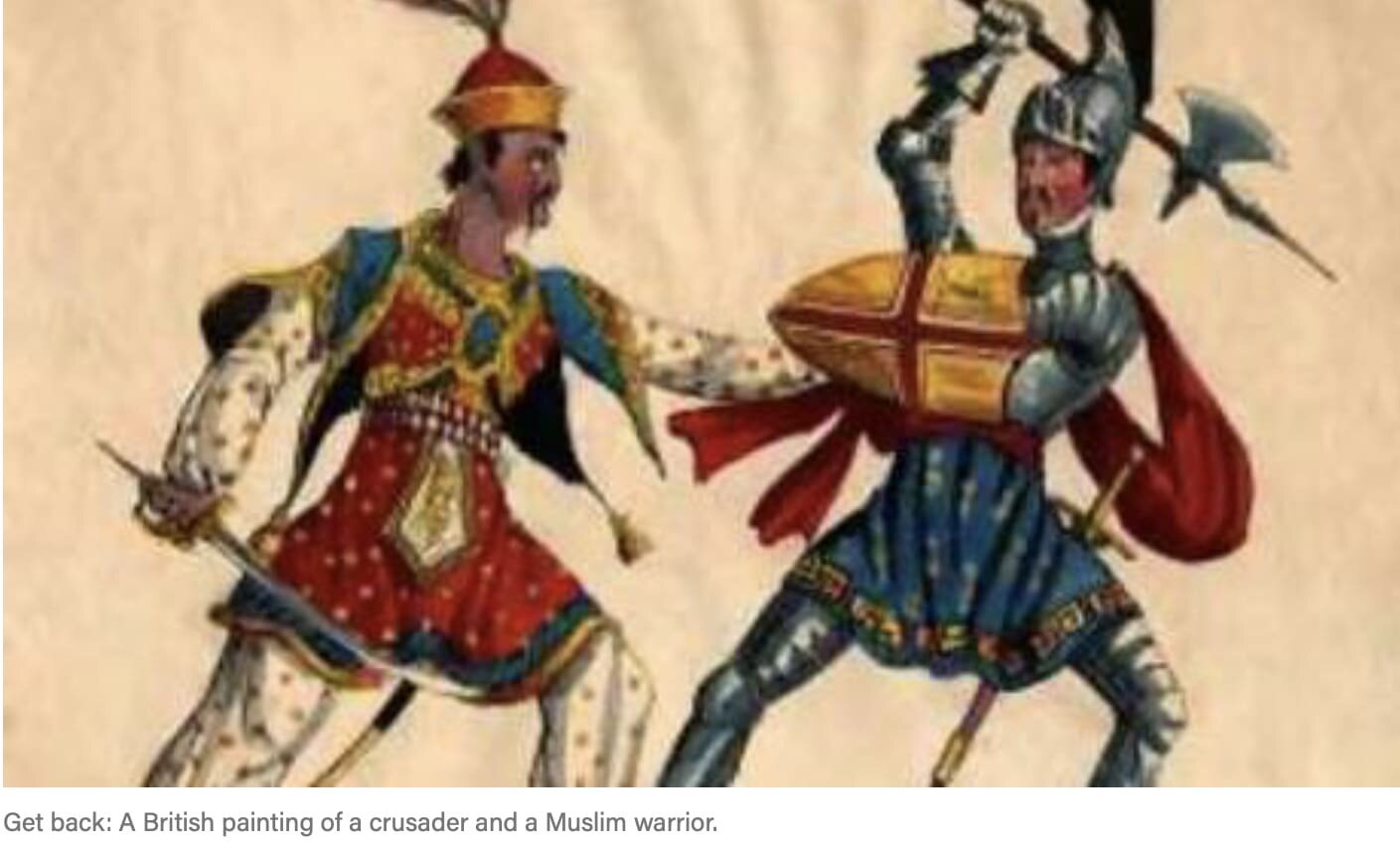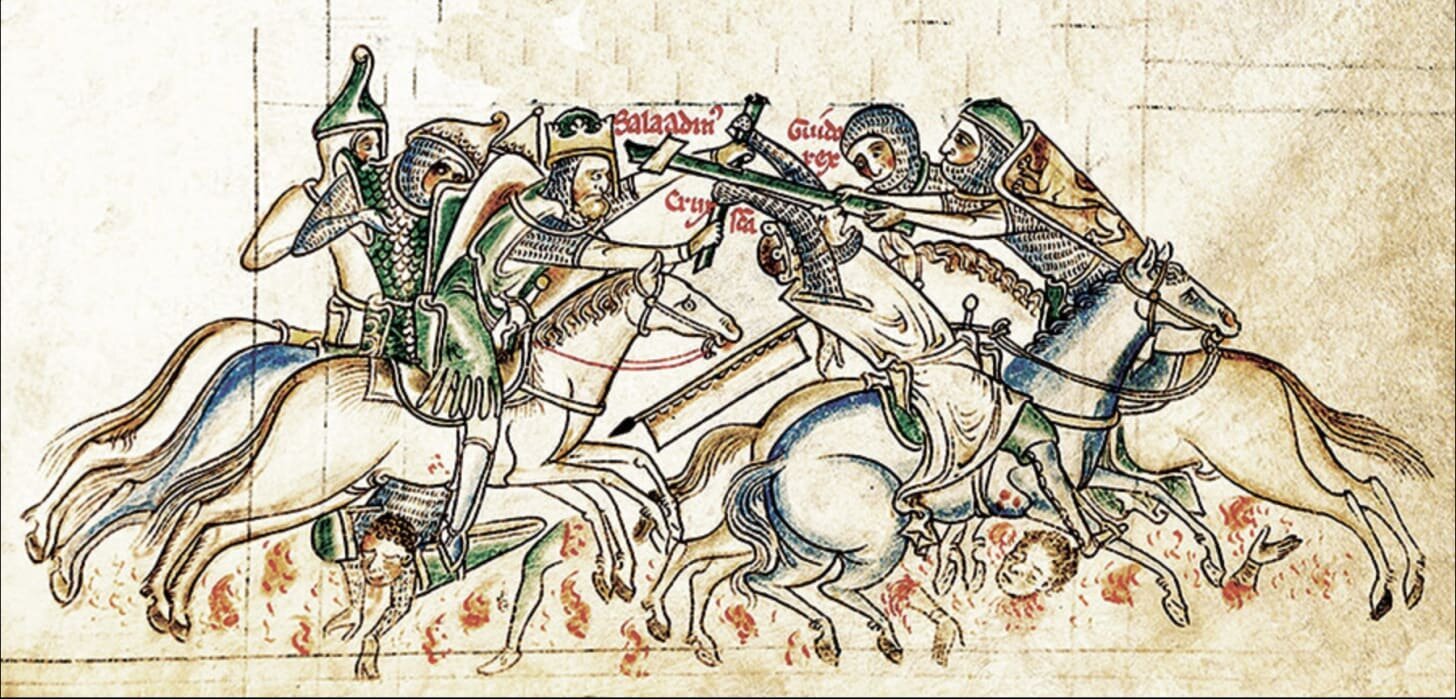From the Silk Roads to Soleimani
“The past is never dead. It's not even past,” William Faulkner wrote in one of his lesser known works, Requiem for a Nun. People use this one all the time because it’s a good quote and, man, does it ever ring true. Nine days ago, the Trump administration used a drone to assassinate Iranian Major General Qasem Soleimani. His death triggered an Iranian retaliation that intentionally resulted in the bombing of two military bases in Iraq housing American troops, and unintentionally in the downing of a passenger plane, killing 176 civilians. Days later, President Trump threatened to bomb cultural sites in Iran that date back thousands of years. As you well know, tension in the Middle East is an old, old story and one filled with power-hungry men launching wars over lands, resources, and power. Historically, these battles have been fought under the banner of religion—and so they continue to be today.
I’ll be teaching a class on Mongolian Buddhism in July, and currently researching the rise of the 13th-century Mongolian Empire. This is the largest empire the world has ever seen, courtesy of the great Chinggis Khan and his heirs. My course will begin with a visit to Karakorum, the one-time capital of Mongolia. The city was a mainstay along the silk roads—those long-ago, well-worn paths of commerce that defined the world for centuries and connected the East and the West through religion and merchandise. In looking at how to define the state of things before the Mongols made their mark on history, I am examining the world that they conquered—a place of warring Sunni and Shia Muslims and sparring Eastern Orthodox and Roman Catholic Christians. The Mongols swept through a land where for centuries caliphate challenged caliphate and popes tested emperors. God spoke into the ears of many men in power and told them to go for it—kill, conquer, collect taxes, build kingdoms and houses of worship, and be eternally rewarded in whichever heaven their faith promised.
I’m reading an amazing book that I recommend highly, The Silk Roads: A New History of the World, by historian Peter Frankopan. Actually, I’m reading to it and listening to it. With ear pods in ears, I walked though downtown Bozeman the other day, listening to a chapter that described the latter days of the Byzantine Empire in the twelfth century. (Today these lands make up Turkey, Greece, Italy, Libya, Egypt, Israel, Cyprus, Bulgaria, Syria, and Morocco.) I’d already read about the first crusades, launched, according to an anonymous writer known as the Monk of Lido, in the spirit of “piety and greed,” exciting Christians to sack and “liberate” holy lands. The biggest prize being Jerusalem, also known as Zion. Sieges of the holy city were followed by decades of peace and cordial trade relations among Jews, Christians, and Muslims. Just before the Mongols routed this place, power had shifted, leading the Seljud and later the Fatimids (both Muslim) to re-establish Turkish hold of Byzantine lands, again including Jerusalem.
At the dawn of the 13th century, the fourth crusade was spearheaded by the Roman Church’s Pope, Innocent III, initially to help his Eastern Orthodox Christian brothers who had found themselves in a weak position before their Islamic enemies. But sometime during this fourth campaign, the mission twisted, and the western crusaders began to sack eastern Christian cities rather than help them fight the Muslims. According to Robert of Clari, a knight and a participant in the war, leaders told their men that the battle “was a righteous one and they should certainly attack the Byzantines … they are the enemies of God!” So, amid catapults, battering rams and ships barricading the harbors, Christians plundered the cities of other Christians, after their leaders had disparaged and dehumanized their citizens. In Constantinople, Frankopan relates, the crusaders helped themselves to the spoils of war, horses and donkeys “loaded up with booty” slipping across “polished marble floors that were polluted with ‘blood and filth.’”
What followed this fourth crusade was the melting away of the Byzantine Empire, as Italian city states picked off cities and territories. The next years have been described as a “lost generation,” during which children who grew up amidst violence, rape and betrayal. The chaos created a perfect environment for what came next, when an army of fierce and determined Mongols, thundering across the steppes to the Middle East on small, sturdy horses, came to conquer the world. The Mongols didn’t ride to spread religion, they were in fact incredibly tolerant of all beliefs, but they wanted resources and territory and they got them both in spades. (If you want to hear more about the Mongols, come join me in Mongolia this summer!!! https://www.mongoliacenter.org/fellowships/mongolia-field-school-2020/buddhism-natural-world/ Seriously, it’s going to be amazing.)
In looking at all this history, I find it oddly comforting—but at the same time deeply infuriating— that western cultures have been fighting over the same things for thousands of years: resources, claimed under pretense of religious righteousness. Comforting, in that we have been through this before (albeit without weapons of mass destruction and the withering impacts of climate change) but infuriating because we keep repeating ourselves, with many innocent people suffering in this endless cycle. Religious fights keep raging! And today, we have a president whom American conservative Christian evangelicals confute with God’s gift, believing him to be a modern version of a biblical patriarch carrying out God’s will in the Middle East. Trump is playing into this role by fighting Muslim countries (except for those he’s cozied up to) and moving the US embassy from Tel Aviv, to the sacred site of Jerusalem. Some Trump supporters believe we are at the time of the Second Coming. Guess what, so did the Crusaders. When Trump ordered a drone to kill Soleimani, then threatened to destroy 52 targets in Iran, including some ancient cultural sites, (which would be a war crime, by the way), he was hailed as an arm of the Lord, standing up to Muslim foes and showing them that America is the greater force because God said so. It’s interesting that two weeks before Trump ordered the drone attack, moderate Christian evangelical, Mark Galli, called for the president’s impeachment and removal from office. This provoked venomous attacks on Galli by other Christian evangelicals – some so ugly they echoed the poisonous passions of the Crusaders before their siege of Constantinople. Galli was variously accused of listening to the “lies of the enemies,” “abortionists,” and “false Christians, like the Pope.” They condemned him for hiding behind a “veil of piety” to cloak an opposition to God.
We seem trapped in a time warp, fighting over resources, as well as righteousness. In the 12th and 13th centuries, it was Christian and Muslim sects fighting for access to harbors, control of trade routes, and taxes on commodities. Today, American Christian factions fight over Trump’s virtue and authority, while he flexes his western muscle, winking at the religious right and racing for Middle Eastern oil. *
Thank you for reading! If you want to sign up for my newsletter, please do! Also, please feel free to pass this link along to others who might be interested. And seriously, think about the Mongolian trip…



